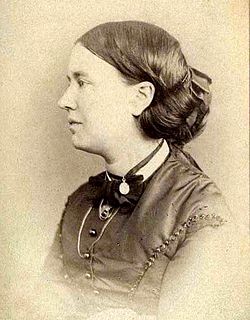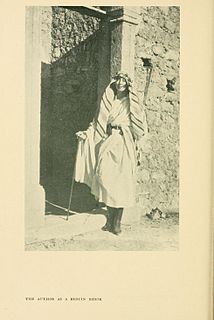A Quote by Epictetus
Consider first the nature of the business in hand; then examine thy own nature, whether thou hast strength to undertake it.
Related Quotes
Here must thou be, O man, Strength to thyself - no helper hast thou here - Here keepest thou thy individual state: No other can divide with thee this work, No secondary hand can intervene To fashion this ability. 'Tis thine, The prime and vital principle is thine In the recesses of thy nature, far From any reach of outward fellowship, Else 'tis not thine at all.
When thou art quiet and silent, then art thou as God was before nature and creature; thou art that which God then wats; thou art that whereof he made thy nature and creature: Then thou hearest and seest even with that wherewith God himself saw and heard in thee, before every thine own willing or thine own seeing began.
Beware, I pray thee, of presuming that thou art saved. If thy heart be renewed, if thou shalt hate the things that thou didst once love, and love the things that thou didst once hate; if thou hast really repented; if there be a thorough change of mind in thee; if thou be born again, then hast thou reason to rejoice: but if there be no vital change, no inward godliness; if there be no love to God, no prayer, no work of the Holy Spirit, then thy saying "I am saved" is but thine own assertion, and it may delude, but it will not deliver thee.
What is thy thought? There is no miracle?
There is a great one, which thou hast not read,
And never shalt escape. Thyself, O man,
Thou art the miracle. Ay, thou thyself,
Being in the world and of the world, thyself,
Hast breathed in breath from Him that made the world.
Thou art thy Father's copy of Himself,--
Thou art thy Father's miracle.
Think not so much of what thou hast not as of what thou hast: but of the things which thou hast, select the best, and then reflect how eagerly they would have been sought, if thou hadst them not. At the same time, however, take care that thou dost not, through being so pleased with them, accustom thyself to overvalue them, so as to be disturbed if ever thou shouldst not have them.








































